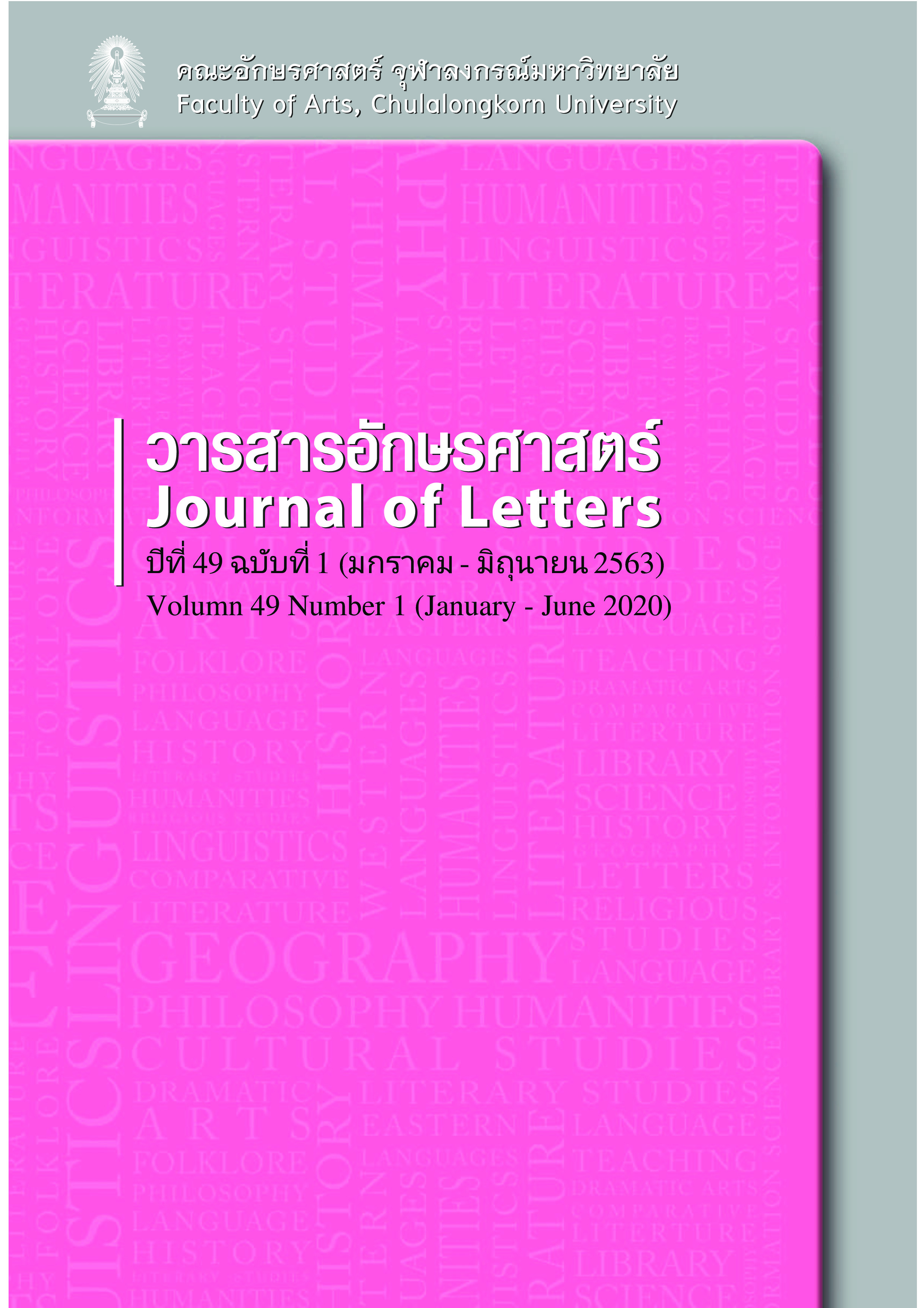Guidelines for Fieldwork Activities in Environmental Geography:
A Case Study of the East of Thailand
Keywords:
Fieldwork, Geography Study, Practices, Undergraduate, East of ThailandAbstract
Geography is an interdisciplinary subject which can be divided into three areas: physical geography, human geography, and geographical techniques. Fieldwork is considered a crucial element of the fact-discovery process and a path to understanding relationships between the physical dimension and human activities. This paper has two objectives: first, to explore suitable geographical fieldwork sites; second, to create guidelines for geographical fieldwork activities. This paper conducted surveys as the main methodology. All 8 provinces across the East of Thailand were selected as the study area. These provinces are diverse in physical landforms and human activities. The results showed that 23 sites are suitable for environmental geography fieldwork activities. The outcomes of this paper can be divided into two parts; the first outlines the building of a spatial database from fieldwork sites by using the Geographic Information System (GIS) technique. The second part presents an analysis of geographical fieldwork activities. Furthermore, deeper analysis suggests that significant environmental geography knowledge from the fieldwork can be divided into two areas: physical geography and human geography. The former focuses on physical landforms, geology, natural resources, and the environment. The latter involves people-environment relationships from the sites and their surrounding areas. In conclusion, this research explores the importance of geographical studies, fieldwork research and the use of appropriate tools for data acquisition.
References
Cambridge University Press. 2019. Geography. In Cambridge Dictionary. https://dictionary.cambridge.org/dictionary/english/geography, accessed July 20, 2019.
Chanhow, Pongsri ผ่องศรี จั่นห้าว. 1997. Pantee Lae Technique Tang Bhumisart แผนที่และเทคนิคทางภูมิศาสตร์ [Maps and Techniques in Geography]. Bangkok: Thai Wattana Panich.
Dunphy, A., & Spellman, G. 2009. Geography Fieldwork, Fieldwork Value and Learning Styles. International Research in Geographical and Environmental Education 18(1): 19-28.
Frew, Jennifer. 1999. Geography Fieldwork Projects. Surrey: Nelson House.
Fuller, I., Edmondson, S., France, D., Higgitt, D., & Ratinen, I. 2011. International Perspectives on the Effectiveness of Geography Fieldwork for Learning. Journal of Geography in Higher Education 30(1): 89-101.
Hope, Max. 2009. The Importance of Direct Experience: A Philosophical Defence of Fieldwork in Human Geography. Journal of Geography in Higher Education 33(2): 169-182.
Johnston, Ron. 2019. Geography. In Encyclopædia Britannica. https://www.britannica.com/science/geography, accessed July 20, 2019.
Kent, M., Gilbertson, D. D., & Hunt, C. O. 1997. Fieldwork in Geography Teaching: A Critical Review of the Literature and Approaches. Journal of Geography in Higher Education 21(3): 313-332.
Krakowka, Amy R. 2012. Field Trips as Valuable Learning Experiences in Geography Courses. Journal of Geography 111(6): 236-244.
Office of the Basic Education Commission, Ministry of Education สำนักงานคณะกรรมการการศึกษาขั้นพื้นฐาน กระทรวงศึกษาธิการ. 1998. Tua Cheewat Lae Samatthana: Kroom Sala Karn Leanlue Sangkom Suksa Sassana Lae Watthanatham ตัวชี้วัดและสมรรถนะ: กลุ่มสาระการเรียนรู้สังคมศึกษา ศาสนา และวัฒนธรรม [Indicators and Core Competency: Social Study, Religion, and Culture]. Bangkok: The Agricultural Co-operative Foundation of Thailand Printing
Philips, R., & Johns, J. 2012. Fieldwork for Human Geography. London: SAGE Publications.
Prutpinyo, Chardsumon ฉัตรสุมน พฤฒิภิญโญ. 2010. Lak Karn Wichai Tang Sangkom หลักการวิจัยทางสังคม [Principle of Social Research]. Bangkok: Charoendee Munkong Publication.
Scott, I., Fuller, I., & Gaskin, S. 2011. Life without Fieldwork: Some Lecturers’ Perceptions of Geography and Environmental Science Fieldwork. Education 30(1): 161-171.
University of Melbourne, School of Geography. 2020. Environmental Geography. https://geography.unimelb.edu.au/research/environmental-geography, accessed May 25, 2020.
Downloads
Published
How to Cite
Issue
Section
License
Copyright and plagiarism
Authors are responsible for obtaining permission to use copyrighted materials from copyright owners. Authors are responsible for observing requisite copyright law when quoting or reproducing copyrighted materials. Quotations and reproductions of content from other published sources must be accompanied by a reference and all sources should be clearly listed in the references section. Quotations and reproductions of content from external sources without due attribution could be considered a severe infringement of academic conduct and may constitute a legal offence under the Copyright Act of B.E. 2537. Any legal ramifications arising from the infringement of copyright regulations would be the sole responsibility of the author(s).



